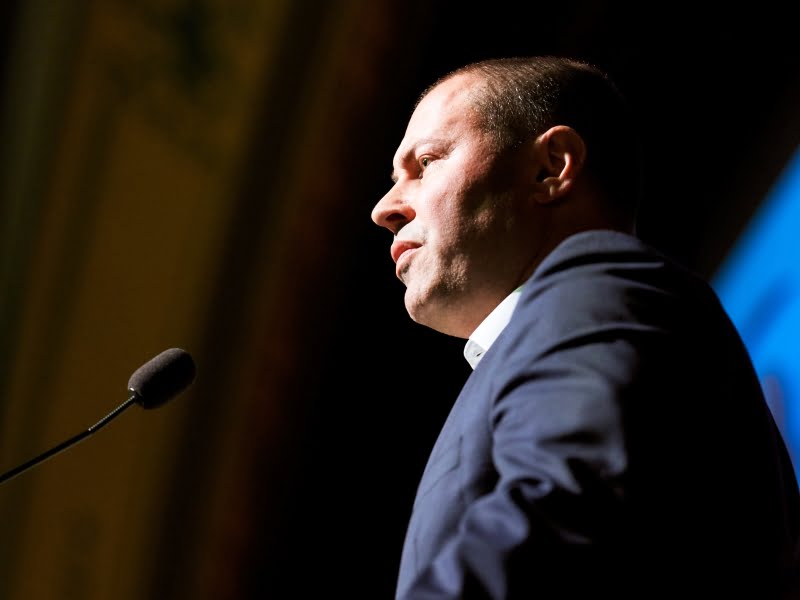Legislation making modest reforms to employee share schemes will be introduced to Parliament this week, but more significant changes to the program have been carved out and will be further consulted on next year, with concerns the process is moving at a “glacial pace”
The Coalition has been planning to improve the employee share scheme (ESS) program for nearly four years – before the last federal election.
Employee share schemes are typically offered by startups to attract employees via the issuing of shares in the company to them, typically at a discounted rate. But Australia’s ESS structure has long been criticised as outdated and not competitive compared to much of the rest of the world.
In late 2018 Treasurer Josh Frydenberg announced a series of reforms, including an increase to the cap on ESS offerings to $10,000, and new exemptions for startups and SMEs from reporting requirements.

Despite a series of inquiries and consultations on these changes, they never eventuated and were superseded this year in the federal budget when the government announced new reforms for the ESS.
These changes include a removal of a rule that sees employees taxed on shares or options issued under an ESS when they cease employment at a company. This rule has often seen an employee have to offload their shares when leaving the company in order to meet the tax liability.
The government also planned to remove regulatory requirements for companies issuing ESS when they don’t charge or lend to the employee as part of the scheme, and increase the cap on shares from $5000 to $30,000 for those not exempt from the requirements.
These changes were slated for 2023-24 at a cost of $345 million in that year, and then $205 million in the following financial year.
After unveiling draft legislation in August, Mr Frydenberg has now introduced a bill to Parliament implementing some of the promised reforms, but has pushed others back for further consultation early next year.
The legislation introduced to the lower house on Wednesday removes the cessation of employment taxing point for tax-deferred employee share schemes, “modernising” Australia’s regime.
“A strong economic recovery and ongoing productivity growth requires investment, risk-taking and innovation, led by the private sector. The Morrison government wants Australians to share in the value they create,” Mr Frydenberg said.
While the final bill does make those taxation changes, it does not implement the increased cap on shares exempt from reporting requirements, despite this being included in the draft legislation.
The government will instead consult on “removing red tape” on the scheme next year.
Angel investor and M8 Ventures partner Alan Jones said it is “disappointing” the government hasn’t gone ahead with all the changes, and that the industry has been campaigning for reforms for more than six years.
“Our industry has been pushing for changes since at least 2015 so to see only part of the widely-agreed reforms go to Parliament after all this time is disappointing, but at least it’s a small step in the right direction,” Mr Jones told InnovationAus.
“Removing the tax-on-exit point was essential and I think it had always been flagged for removal so six years in the making seems glacial at best.”
Mr Jones also said that the government reforms should go further.
“To allow Australia’s best startups to attract the world’s best talent, particularly from Silicon Valley, I really feel the threshold should have been lifted to $50,000-$100,000, not $30,000,” he said.
“You’ve got to remember we’re in a global competition for talent – Silicon Valley is where the world’s best talent generally is and equity compensation there is significantly more generous.”
A government-led committee also recently said that the ESS program is “complicated and restrictive”, and that reforms beyond what the Coalition has committed to are required to bring it up to standard.
“The changes announced by the government in the budget are a significant step forward, removing some of the most egregious barriers to the use of ESS. The report highlights some of the steps that could be taken to make Australia a global leader in this area,” Liberal MP and committee chair Jason Falinski said in the report in late August.
Mr Falinski said that the current policy settings discourage, inhibit and “in most cases outright block the use of such schemes”.
“In some extreme circumstances companies cited Australia’s policy settings as reasons for listing in other jurisdictions and keeping operations out of Australia,” the Standing Committee on Tax and Revenue report said.
Do you know more? Contact James Riley via Email.

